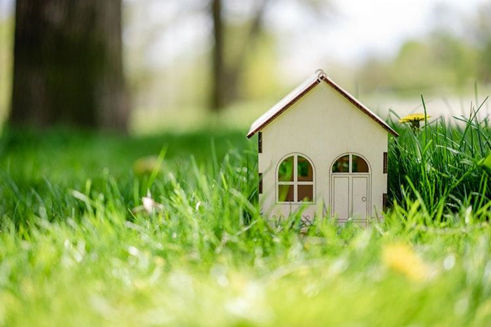One day, I found myself wandering through my large three-bedroom home, feeling both overwhelmed and underwhelmed. Even though it was nicely furnished, each room echoed a peculiar kind of emptiness. Everywhere I turned, the realization hit harder: the scale of my possessions was immense. Was all this space truly necessary, or was it just an illusion of abundance? That was the day the benefits of downsizing crystallized for me. For many, a similar epiphany comes when they recognize the strain their large living space puts on their finances and mental well-being.
Bigger Isn’t Always Better
In a world driven by the “bigger is better” mantra, downsizing might seem counterintuitive. But what does it really mean? At its heart, downsizing involves transitioning to a cozier living space. The motivations behind such a move are as varied as those who choose it. After years of raising children, empty nesters find their large homes echoing with memories but devoid of the chatter. Retirees aiming for a simpler life opt for manageable spaces. Others might be propelled by a sudden lifestyle change or, perhaps, an internal awakening that nudges them towards minimalism. But regardless of the reason, the financial implications remain consistently advantageous.
Lower Housing Costs

Imagine the relief of shrinking monthly expenses. Opting for a smaller home translates directly into less financial strain. It also means that monthly rent or mortgage payments witness a significant decrease. If you have considerable equity in your large house you might even be able to end up with no mortgage on a smaller house.
But the benefits don’t stop there. Even annual expenses, such as property taxes, insurance, and general maintenance, often see a sizable reduction. Over time, these savings accumulate, presenting a substantial amount that can be redirected toward investments, luxuries, or even early retirement.
Decreased Utility Bills
It’s not just about the visible savings. The less apparent ones play a crucial role, too. Smaller homes naturally consume fewer utilities. Rooms heat up or cool down faster, fewer lights are needed, and overall energy consumption goes down. This isn’t just good for your pocket but also for the planet. A reduced utility bill every month might seem insignificant initially, but annualized, it’s a boon to your savings account.
Reduced Maintenance
Large homes come with large responsibilities. Each additional room means another set of appliances, fixtures, and furnishings to maintain. Every square foot added to a garden means increased landscaping costs. But in a smaller home, these costs and efforts shrink. Fewer appliances translate to less wear and tear. A compact garden can be maintained with minimal effort. The resultant savings in terms of both money and time cannot be overstated.
Selling Off Assets
The process of downsizing itself can be financially rewarding. That extra couch, the rarely-used dining set, or even redundant electronic gadgets can fetch a good price. Opportunities for sale are numerous: garage sales, online platforms like eBay or Craigslist, and consignment stores. It’s a win-win – decluttering your life while adding to your financial reserves.
Indirect Benefits of Downsizing
1. Economic Mental Shift
A remarkable transformation accompanies a move to a smaller space. Suddenly, every purchase and every acquisition demands scrutiny. Gone are the days of mindless shopping. In its place arises a new, more intentional form of consumption. The benefits of downsizing are not just tangible; they bring about a profound mental shift. Quality takes precedence over quantity, and a newfound appreciation for essentials emerges.
2. Savings from Simplified Lifestyle

Less space invariably means fewer possessions. The days of impulsively buying decorations or furniture are behind you. Every corner of your new home has a purpose, ensuring unnecessary expenditures become a thing of the past. This lifestyle doesn’t just result in one-time savings but provides a sustained reduction in expenses that are unnecessary. The frequent replacements and upgrades that larger homes often demand become sparse.
3. Environmental Savings
Financial savings and environmental consciousness often align beautifully when downsizing. With its reduced carbon footprint, a smaller home is a step towards a greener planet. Furthermore, many downsizers, such as solar installations or water-saving fixtures, are incentivized to make eco-friendly choices. While benefiting the environment, these often come with tax breaks or reductions in utility bills.
Tips to Make the Most of a Smaller Space
Embrace Minimalism
A smaller space is a canvas for a minimalist masterpiece. It challenges you to rethink possessions, holding onto only the essential and the cherished. As every item finds its purpose, the environment radiates tranquility. The minimalist approach goes beyond mere aesthetics; it’s a lifestyle that promotes intentional living, maximizing every inch of space and every penny spent.
Smart Storage Solutions
Ingenious storage solutions are the best friends of those living in compact spaces. Furniture that doubles up as storage, wall-mounted racks, and under-bed compartments are just a few ideas. Such strategies ensure that every item has a designated spot, eliminating clutter. A place for everything and everything in its place becomes more than a saying; it’s a way of life.
Maximizing Savings in Relocation
Downsizing offers a hidden perk: immediate savings during relocation. Fewer possessions naturally lead to reduced moving costs, both in volume and weight. With less to pack, you can personally handle packing tasks, circumventing the need for professionals. This shift to a compact lifestyle helps you to avoid overspending while relocating and stay on budget. The agility of moving fewer items allows you to choose off-peak seasons for relocation. It also ensures cheaper service rates and utilizes other money-saving moving tips. Gone are the demands of relocating large specialty items, simplifying the move, and minimizing costs. And if storage is needed, fewer items mean reduced fees. In essence, downsizing is not only a long-term investment but a smart strategy for an economical relocation experience.
In Conclusion
Downsizing, while often seen as just a shift to a smaller living space, is really an invitation to a life of simplicity, intention, and financial savviness. From saving on relocation costs to enjoying a decluttered life with fewer expenses, the benefits of downsizing are both immediate and long-lasting. And while the allure of bigger homes may be ever-present, the quiet, assured charm of a compact, well-managed space often brings the most joy and financial relief. In the end, downsizing isn’t just about living in a smaller home; it’s about living larger in all the ways that truly matter.
You might also like:
- 7 Ways To Save Money This Fall
- 5 Valuable Tips To Avoid A Whopping Moving Bill
- Save Money by Slashing Your Utility Bills
- Eat for Cheap: What You Can Do to Make Filling Family Dinners Fit a Tight Budget
- 4 Frugal Money Saving Tips to Cut Expenses
- Biggest Budgeting Challenges when Decorating a Home
- 5 Ways to Save Money on Home Bills
- Money Habits That Can Help You Retire Early
- Are you Financially Prepared for Retirement?

